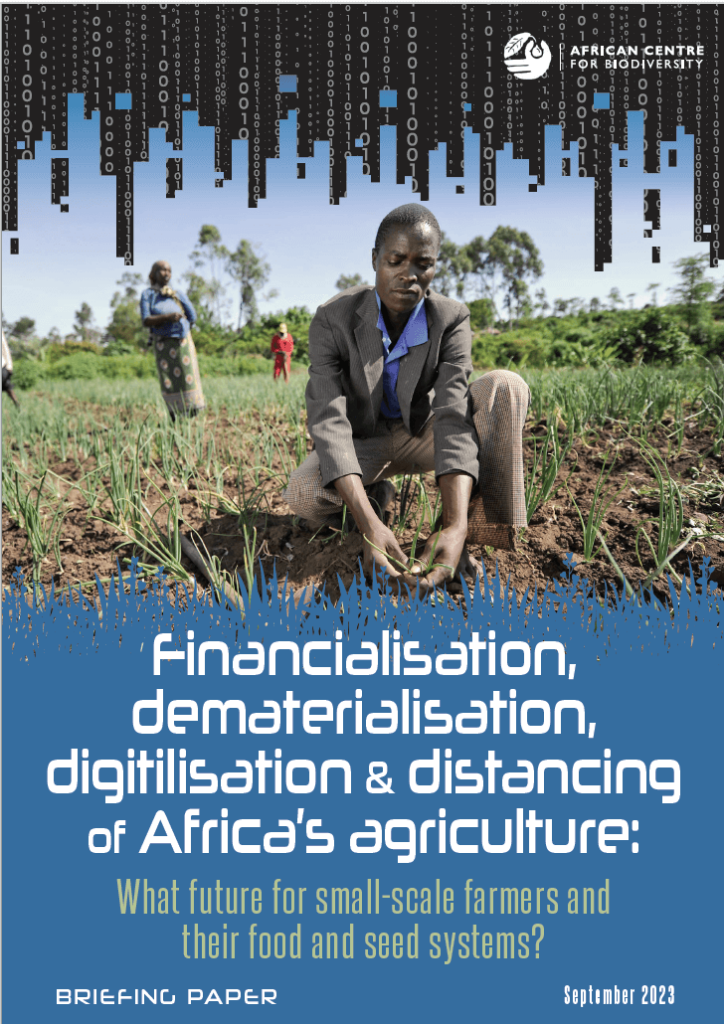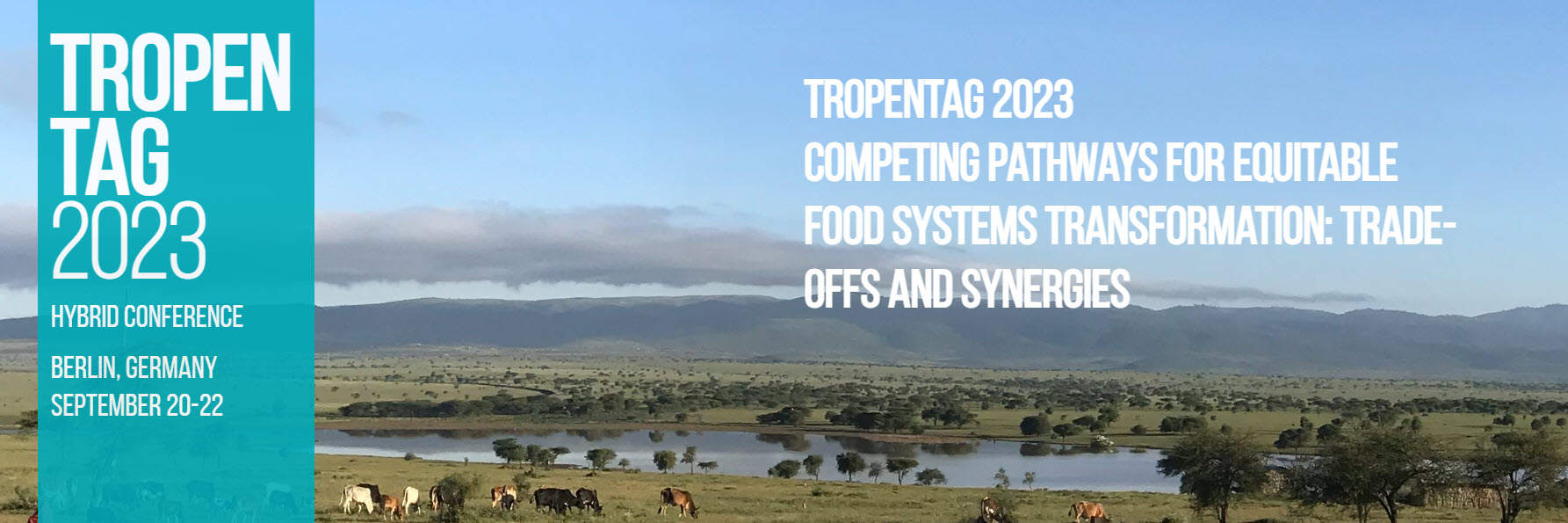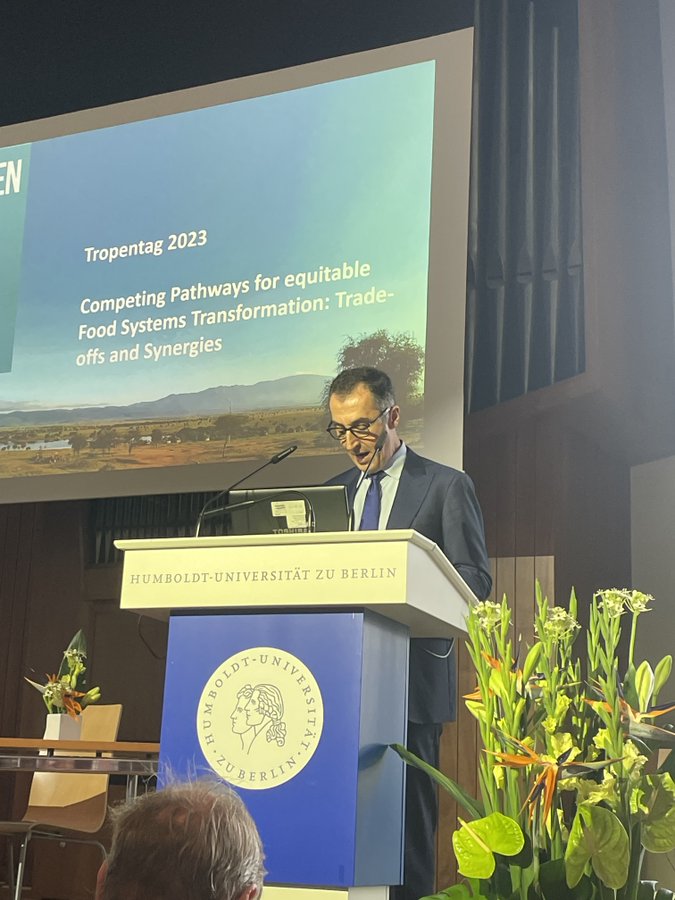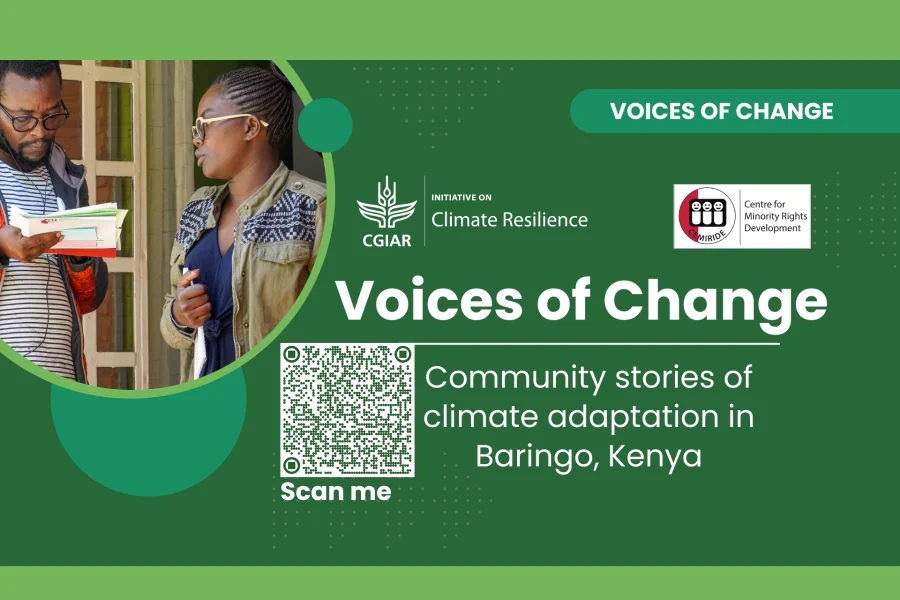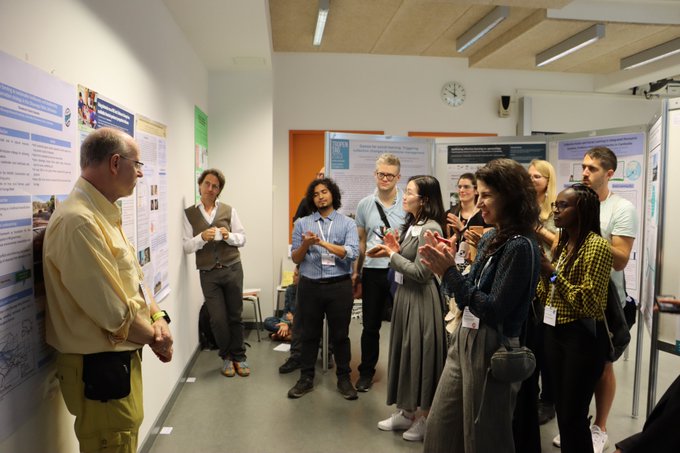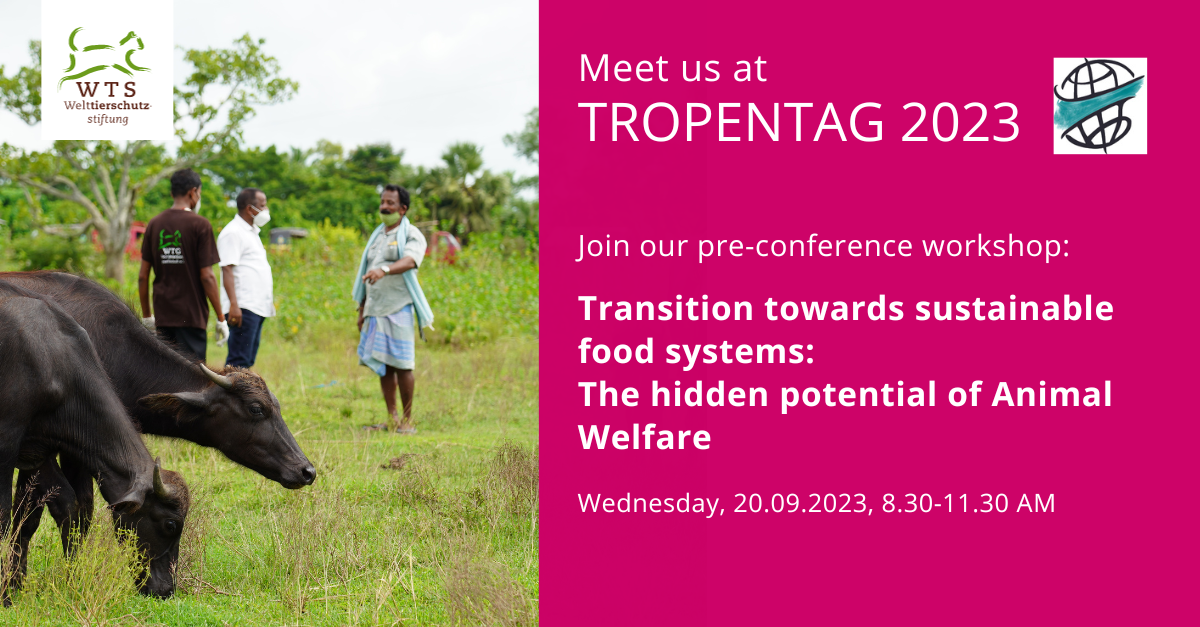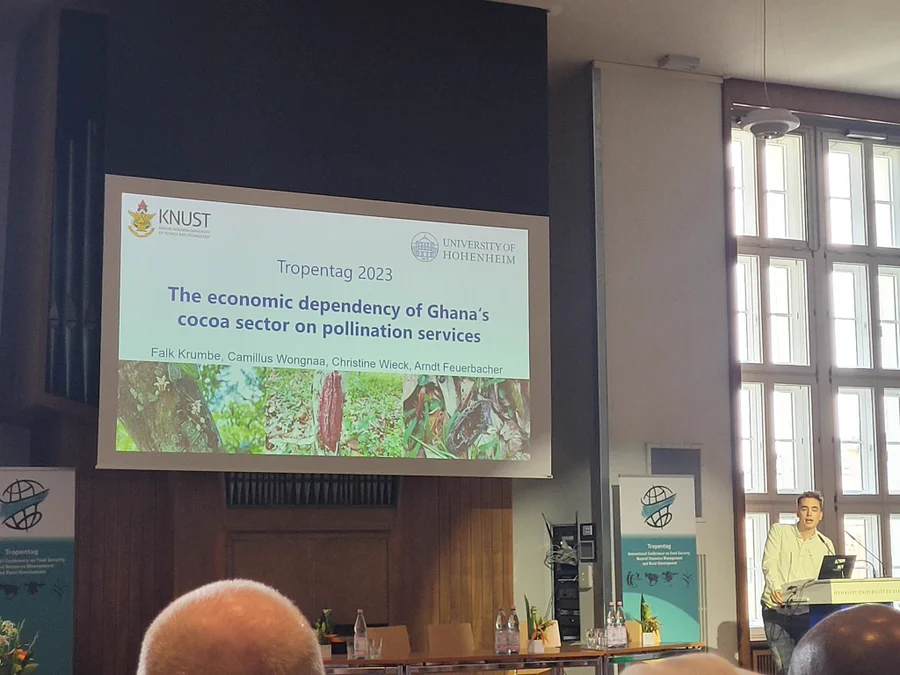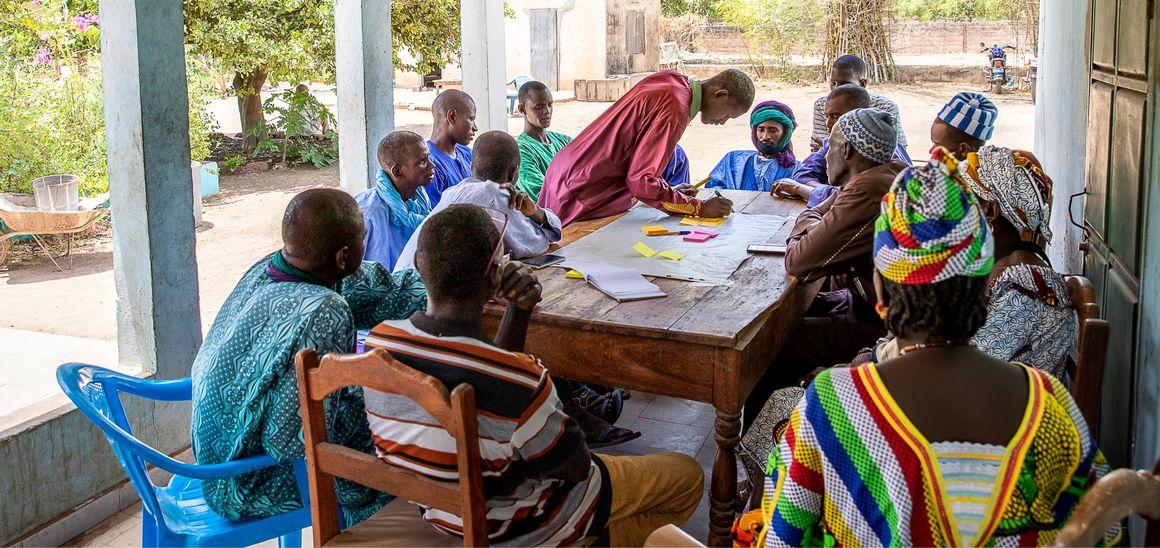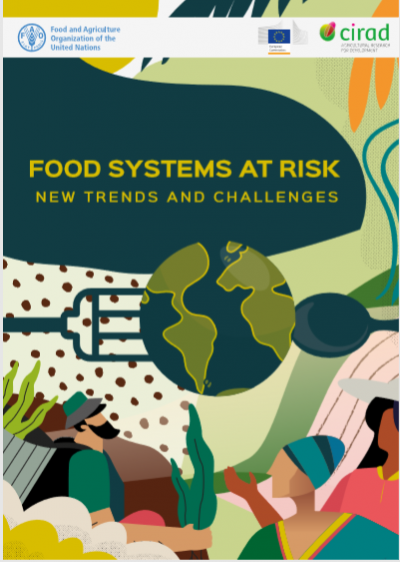- Opening Remarks Johan Swinnen, Managing Director, Systems Transformation, CGIAR; Director General, IFPRI
- Global Food Crisis: Where do we Stand and How is the GRFC Servicing Early Warning Systems? Sara McHattie, Global Coordinator of Food Security Information Network (FSIN) (Presentation)
- How to Identify Food Crisis Risks? Early Warning Systems for Global Market Shocks and for acute Food Insecurity Rob Vos, Director, Markets, Trade and Institutions (MTI), IFPRI (Presentation)
- What Works and What Does not Work with Existing Early Warning Systems to Inform Preventative Action? Arif Husain, Chief Economist, World Food Programme (WFP)
- Agricultural Market Early Warning Mechanisms for Identifying Global Risks to Food Security Joseph Glauber, Senior Research Fellow IFPRI and Secretary of AMIS (Presentation)
- How can Improvements/Integration of EWEAs better Facilitate Anticipatory Action? Sandra Ruckstuhl, Senior Researcher at International Water Management Institute (IWMI) and co-lead CGIAR initiative on Fragility, Conflict and Migration (FCM)
- Global Network Against Food Crises and Early Warning, Early Action to Address Food Crises Leonard Mizzi, Head, Sustainable Agri-Food Systems and Fisheries, European Commission
- Moderator Charlotte Hebebrand, Director of Communications and Public Affairs, IFPRI
Platform for African – European Partnership in Agricultural Research for Development
Wednesday, September 27, 2023
Facilitating Anticipatory Action with Improved Early Warning
Tuesday, September 26, 2023
Financialisation, dematerialisation, digitalisation & distancing of Africa’s agriculture
This paper describes key financial instruments like futures and derivatives trading markets, and index funds. It also explores the financialisation of climate change and the role of public private partnerships. Significant financialisation actors are identified, such as banks, asset management funds, large institutional investors and philanthropic organisations. Agricultural commodity trading companies are engaged with financialisation instruments like derivatives, as are global energy traders. Digitalisation is an enabler of financialisation. See more on digitalisation of Africa's agricultural systems in part one.
There is a 'distancing' that happens in the process of financialisation - distancing of revenue generation far from the place of production, distancing of accountability as the entry of many stakeholders unrelated to food and farming obscures responsibility, and distancing (almost erasing) of the physical form of food production, including of those who produce it and their related knowledge.
You can read the briefing paper here and the associated fact sheet here.
Monday, September 25, 2023
Gender-Mainstreaming Action Plan for Inclusive and Sustainable Food Systems in Africa
- The various global, continental, and regional frameworks on gender responsiveness/ inclusiveness and equality
- The existing literature on the current state of gender gaps affecting the drivers of the food systems in Africa
- The outcomes of the Round Table Discussions by multi-stakeholders and partners on gender issues and food systems in Nairobi 2022.
- The collated results and outcomes of the online/computer knowledge-based assessment by multistakeholders and partners on gender issues and the food system in the continent.
New multi-donor fund Financing Agricultural Small-and-Medium Enterprises in Africa
At the 2023 U.N. General Assembly, USAID and Norway announced the Financing for Agricultural Small-and-Medium Enterprises in Africa (FASA) Fund to spur investment in Africa’s agricultural growth.
FASA Fund’s Impact
Over the next 10 years, FASA Fund aims to support 500 agri-SMEs and 1.5 million smallholder farmers, ultimately benefiting 7.5 million people while bolstering nearly 60,000 jobs. The Fund will actively invest in climate adaptation; gender equality; crop diversity to better withstand shocks from pests, weather, and disease; and regenerative agriculture practices that integrate conservation efforts and restore soil health. Through FASA Fund, agri-SMEs will:- Increase food and nutrition security: Boost agricultural productivity; strengthen supply chains; connect small-scale farmers to markets, innovation and technology; and improve access to food for local communities.
- Reduce poverty: Generate growth in agriculture, the most effective sector at poverty reduction in Africa.
- Combat climate change: Deliver the tools and skills that farmers and businesses need to adapt to climate change and invest in climate-smart practices.
- Close gender gaps: Break down barriers for women business owners and farmers to access the tools and services they need to be more productive. One-third of agri-SMEs are women-owned and sixty percent of women in Sub-Saharan Africa work in agriculture.
- Spur economic growth: Enable businesses to scale, create employment opportunities and grow into larger markets at home and abroad.
Related:
19 September 2023. At an event hosted by the World Economic Forum, USAID Administrator Samantha Power and Anne Beathe Tvinnereim, the Norwegian Minister of International Development, launched a new multi-donor fund designed to unlock hundreds of millions in financing for small-and medium-sized agricultural businesses (agri-SMEs) in Africa.Thursday, September 21, 2023
The Political Economy of Food System Transformation - Pathways to Progress in a Polarized World
- Offers an interdisciplinary perspective on the political economy of nutrition, biotechnology, trade, and agricultural policies
- Adopts diverse methodologies including economic modelling, qualitative case studies, and discourse analysis
- Identifies which political economy issues are cross-cutting and which are context-specific
- Introduction: Political Economy of Food System Transformation, Danielle Resnick and Johan Swinnen
- Facts, Interests, and Values: Identifying Points of Convergence and Divergence for Food Systems, Koen Deconinck
- The Political Economy of Reforming Agricultural Support Policies, Rob Vos, Will Martin, and Danielle Resnick
- From Re-instrumenting to Re-purposing Farm Support Policies, Kym Anderson and Anna Strutt
- Policy Coalitions in Food Systems Transformation, Johan Swinnen and Danielle Resnick
- Government Response to Ultra-Processed and Sugar Beverages Industries in Developing Nations: The Need to Build Coalitions Across Policy Sectors Eduardo J. Gómez
- Ultra-processed Food Environments: Aligning Policy Beliefs from the State, Market, and Civil Society, Jonathan Mockshell and Thea Nielsen Ritter
- Asymmetric Power in Global Food System Advocacy, Jody Harris
- The Political Economy of Bundling Socio-Technical Innovations to Transform Agri-Food Systems, Christopher B. Barrett
- Sustainable Food and Farming: When Public Perceptions Depart from Science, Robert Paarlberg
- Enabling Positive Tipping Points in Public Support for Food System Transformation: The Case of Meat Consumption, Lukas Paul Fesenfeld and Yixian Sun
- Urban Food Systems Governance in Africa: Towards a Realistic Model for Transformation, Gareth Haysom and Jane Battersby
- The Political Economy of Food System Transformation in the European Union, Alan Matthews, Jeroen Candel, Nel de Mûelenaere, and Pauline Scheelbeek
- Tracking Progress and Generating Accountability for Global Food System Commitments, Stella Nordhagen and Jessica Fanzo
- Conclusions, Danielle Resnick and Johan Swinnen
Extracts Policy coalitions p. 111 - 128
each other.
Coalitions—or a set of individuals and groups with shared policy preferences—lie at the heart of political economy. They are also often considered central to policy change. (...) Coalitions matter for at least two reasons. First, interest groups that share similar goals often exert more influence on policymakers and greater visibility to the public when they combine to forge a larger partnership. (...) Second, coalition members can benefit from the consolidation of their different types of resources and legitimacy.
In some cases, the same agent is involved in multiple elements of the value chain, such as the four dominant global agricultural trading firms, Archer Daniels Midland, Bunge, Cargill, and Louis-Dreyfus. (page 132)
Interests of food processing companies involved in early-stage processing will often be aligned with those of farmers, while those of further processing may be opposite. In this case, coalitions will emerge that include farm organizations and early-stage processors, which may lobby for import tariffs,
while retailers, traders, and final consumers may oppose such tariffs. Such coalitions not only organize around tariffs but also on product standards or other type of regulations.
The cross-issues section (page 138 - 149) first focuses on coalitions that coalesce around food quality and nutrition and how the contours of those coalitions may vary based on a country’s or region’s level of economic development.
- Generating coalitions for food safety can be more challenging in parts of the Global South, such as sub-Saharan Africa, where a large share of the poor depends on the informal sector, including wet markets or street vendors, for affordable food.
- The combination of costs to adhere to such standards among informal retailers, combined with inadequate regulatory and enforcement capacity in such settings, creates few domestic constituencies for reform despite recurrent cholera outbreaks and food-borne illnesses.
- Poorer consumers, including those who do understand health risks, also cannot effectively use boycotts as a tool to enforce shifts in regulation in the same way that wealthier consumers can in developed countries. (page 138)
- The spread of global value chains has implications for the political economy of agricultural and food policies because it changes the incentives of various agents in the value chains to lobby for, or against, import protection and integration in international trade agreements. (...) Trade protection is lower when the domestic content of foreign produced final goods is higher and (vice versa) for foreign content of domestically produced goods. (page 143)
- Other types of coalitions reveal attempts to rectify asymmetric power dynamics between developing country agricultural producers and multinational corporations. For instance, in 2018, Ghana and Côte d’Ivoire—who produce 63 percent of the world’s cocoa—teamed up to create the Ivory Coast-Ghana Cocoa Initiative (ICCIG). (page 143)
Extracts Government Response to Ultra-Processed and Sugar Beverages Industries in Developing Nations (Mexico, India, South-Africa) p. 133 - 149
- Why were governments in Mexico, India, and South Africa unwilling to demonstrate equal political resolve across all public health prevention and regulatory policy efforts in response to NCDs?
- Why focus mainly on a soda tax when other regulatory policies were just, if not more, important?
to all three countries confronting rising NCD challenges (problems stream), a change in political context (political stream), and policy solutions (policy stream), policy entrepreneurs at the domestic and international level were important for coupling these three streams together to build consensus for reform.
It has been in select emerging economies, not wealthier nations, where we have seen the boldest attempts to introduce national policy innovations in response to these healthcare challenges. (...) For example, Mexico’s Congress passed a national soda tax in 2014, India adopted a national sin tax on sugary drinks and other unhealthy products in 2017, and South Africa’s government created its own tax on sugary beverages in 2018. (page 150)
When it came to regulating the marketing and sale of soda and ultra-processed foods, as well as the introduction of more effective food labels, however, each of these nations were far less successful,
though in varying degrees. (page 151)
Because the tax posed an immediate economic threat to industry and generated resistance among industry actors, it further increased the visibility of the policy debate for governments and among the
public; the same could not be said for industry regulations. (page 151)
Several opportunities exist for international organizations, government, and civil societal actors to build strong coalitions in support of marketing and sales regulatory policies while holding governments accountable for their enforcement. Furthermore, the emergence of soda and snack food taxes has
revealed that developing nations can eventually overcome the powerful resistance of food industries.
KO, the Indian subsidiary of Coca-Cola, stated that if the sin tax passed, it would consider shutting down several of its bottling plants in India. Coca-Cola India was of the view that this tax would lead to a reduction in the sale of its products. By 2017, the food industry and trade groups were working together to determine how they could effectively lobby against the tax proposal. (page 159)
Industries engage in a form of self-regulation, which is monitored by the Advertising Standards Council of India (ASCI) (...) There was no concerted international effort, either from multilateral organizations or the scientific community, to recommend and impress onto India’s government the idea of pursuing industry regulations. (...) Compared to the sin tax, there is no immediate and substantial financial threat to industries being regulated. In fact, industries may decide to simply ignore regulations, perhaps even willing to pay a small, one-off fine. (page 161)
The Beverage Association of South Africa (BEVSA)’s—which represents companies like Coca-Cola and PespiCo — used“ anti-tax advertisements” in newspapers, as well as BEVSA’s meetings with national health officials to emphasize the reformulation of sugary beverages, which analysts claim is often perceived as a proposed alternative to a tax. (...) Considerable concessions were made to industry prior do the tax’s adoption, leading to a reduced taxation rate from 20 percent to 10–11 percent. (page 163)
The government of South Africa was less successful when it attempted to introduce industry regulations. For instance, when it comes to advertising unhealthy products, especially toward children, to this day the government has not enacted any legislation. (...) Instead, and similar to what we saw in Mexico, industries have opted to engage in self-regulatory practices, such as through the 2009 South Africa Pledge on Marketing to Children, which was released by the Consumer Goods Council of South Africa.
In general, proactive civil societal activism and influence in the area of nutrition policy has been delayed for many years in South Africa. Nevertheless, more recently, NGOs, such as HEALA, have done a commendable job of raising awareness about industries’ ongoing violation of the government’s
marketing policies toward children. HEALA in general has also been vocal about the importance of front-of-package warning labels while, as mentioned earlier, being fully supportive of an SSB tax. (page 164).
Regulatory restrictions on industry do not provide additional government revenue in South Africa. It is instead an entirely public health matter. In a context where the national government does not seem fully committed to enforcing existing regulations, there is little additional economic incentive to focus on them by nutrition and health advocates. Consequently, efforts to introduce improved labeling and advertising restrictions continue to be delayed. (page 165)
Extracts Ultra-processed Food Environments: Aligning Policy Beliefs from the State, Market, and Civil Society p. 155 - 177
In sub-Saharan Africa where increasing food prices and low incomes play a critical role in determining the food basket, the growing trend of increasing ultra-processed food consumption raises a fundamental concern related to food choices and the increasing prevalence of obesity, stunting, and wasting.
In Ghana, between 2007/08 and 2014/15, the prevalence of obesity and overweight increased by 47
percent and 25 percent, respectively, reaching rates of 15 percent and 24.5 percent, respectively. Diet-related diseases are also on the rise in Ghana. This increasing trend in obesity and overweight is associated with the consumption of ultra-processed foods.
Government efforts to regulate and civil society strategies to reduce access to affordable ultra-processed foods have been largely unsuccessful due to limited state capacity, lobbying, and cultural norms. (...)
Due to differences in food prices, affordability, and accessibility, in high income countries, people with low incomes tend to consume more ultra-processed foods, whereas in middle- and low-income countries such as Ghana people with high incomes tend to consume more ultra-processed foods (page 174).
As most ultra-processed foods are imported, the products are considered as western-style convenience foods, which are associated with ideas of “foreign” and “modernity.” The growing middle-class demands ultra-processed foods to establish their social identity. (page 184).
The market coalition discourse highlights inadequate infrastructure for storage, transport, distribution, and processing as challenges affecting the availability of healthy food products. These challenges are attributed to the high cost of establishing the relevant infrastructure for healthy foods compared to that for ultra-processed foods. (page 185).
A respondent highlighted, “Frankly, it is quite difficult but, first, looking at the political will and interest, you will be surprised to know that powerful people are behind the importation of such foods in the country. So, if you have such powerful people who are behind these foods getting into the country, the question is how do you stop them from doing their business? … it is quite difficult” (page 186).
In Africa, there are only seven countries that have national food-based dietary guidelines. Ghana began the process of developing these guidelines in 2016 but has not yet made them public. (...) Some government agencies also hold the belief that their main responsibility is to ensure that “food is safe and thus the nutritional content is of less priority. (...) These beliefs limit the scope of their work and enforcement mechanisms—with implications on the increasing prevalence of ultra-processed foods. As the evidence suggests for the food environment in Ghana, without strong regulations in the free market, the market is left to supply and demand, and self-interests can potentially lead to serious market failures. (page 188).
The MEALS4NCDs project seeks to measure and support policy actions to create healthy food environments for children in Ghana. (page 192).
To make self-regulation effective and not self-serving, a set of basic standards that include: (page 191).
- multi-stakeholder engagements (involving scientists, nongovernmental organizations, global governance, and industry) with no single party given disproportionate power;
- setting relevant aims and targets with codes of acceptable behaviors;
- and undertaking external and objective evaluations, including mandatory public reporting of adherence to regulations, such as on labeling, and oversight by a global regulatory or health authority.
Extracts Urban Food Systems Governance in Africa p. 288 - 305
Wednesday, September 20, 2023
Tropentag 2023
20 – 22 September 2023. Tropentag 2023 - Competing Pathways for Equitable Food Systems Transformation: Trade-Offs and Synergies
The annual interdisciplinary conference on research in tropical and subtropical agriculture, natural resource management and rural development (Tropentag) is jointly organised by the universities of Berlin, Bonn, Göttingen, Hohenheim, Kassel-Witzenhausen, ZALF e.V. (all Germany), Ghent University (Belgium), Czech University of Life Sciences Prague (Czech Republic), BOKU Vienna (Austria), and the Council for Tropical and Subtropical Research (ATSAF e.V) in co-operation with the GIZ Fund International Agricultural Research (FIA).
Tropentag 2023 was organised as a hybrid conference by Leibniz Centre for Agricultural Landscape Recearch (ZALF), Germany, in cooperation with the Humboldt-Universität zu Berlin, Germany.
- See the IFPRI PROGRAM
- The conference programme booklet can be downloaded as pdf
Extracts of the programme
20/09 Welcome addresses and opening
- Cem Özdemir, Federal Minister of Food and Agriculture, Germany
- Julia Von Blumenthal, President of Humboldt-Universität zu Berlin, Germany
- Frank A. Ewert, Scientific director of ZALF Müncheberg, Germany
- Dagmar Mithöfer (HU Berlin) and Stefan Sieber (ZALF), heads of organising committee
- Folkard Asch, ATSAF / University of Hohenheim
20/09 Keynote speeches and discussion
- Johan Swinnen, Director General IFPRI; CGIAR Managing Director Systems Transformation Science Group, USA
Achieving resilient food systems (Abstract) - Jody Harris, World Vegetable Centre, Thailand
- Catherine Nakalembe, University of Maryland, USA
20/09 Advancing a demand-driven research portfolio to improve water, land and food systems in the Global South
- CLAUDIA RINGLER, HUA XIE, RUTH MEINZEN-DICK, NICOS PEREZ:
The role of groundwater as an accelerator of agricultural transformation: Insights from the CGIAR initiative on NEXUS Gains
Abstract (ID 994 ): Web-Version (html) : Print Version (pdf)
- MARCELA QUINTERO, VERONIQUE ALARY, SARAH FREED, AYMEN FRIJA, LISA FUCHS, SARAH JONES, CHRISTINE LAMANNA, GUILLERMO ORJUELA, SIMONE STAIGER, CLAUDIA TRISTAN:
Leveraging agroecological transitions: Experiences from the CGIAR initiative on agroecology
Abstract (ID 995 ): Web-Version (html) : Print Version (pdf)
- ANA MARIA LOBOGUERRERO, JON HELLIN, SABRINA ROSE:
Applying a social equity approach to transformative adaptation: Minimising trade-offs between environmental and socio-economic outcomes
Abstract (ID 996 ): Web-Version (html) : Print Version (pdf)
- MARY EYENIYEH NGAIWI, NICOLAS HOYOS, ROBERT ANDRADE, MARIA DEL MAR ESPONDA, ELIZA VILLARINO, AUGUSTO CASTRO-NUNEZ:
Navigating climate mitigation in global food systems: Insights from CGIAR
Abstract (ID 997 ): Web-Version (html) : Print Version (pdf)
- JAWOO KOO, ANDREA GARDEAZABAL, JONATHAN STEINKE:
Responsible digital innovation in agri-food systems: ethical and equitable transformation for sustainable agriculture
Abstract (ID 1005 ): Web-Version (html) : Print Version (pdf)
- NICHOLAS MINOT:
CGIAR initiative on rethinking food markets: An overview and an example of preliminary results from Ethiopia
Abstract (ID 1006 ): Web-Version (html) : Print Version (pdf)
- HAUKE DAHL:
The stability-and-peace accelerator: scaling food, land and water systems innovations in fragile and conflict-affected settings
Abstract (ID 1010 ): Web-Version (html) : Print Version (pdf)
- CéLINE TERMOTE, INGE BROUWER, MARK LUNDY:
The retail food environment as driver of consumer choices and source of decent livelihoods
Abstract (ID 1009 ): Web-Version (html) : Print Version (pdf)
21/09 Research cooperation for sustainable development
- KIRSTEN KIENZLER, MIKHAIL RUSAKOV:
Research cooperation for sustainable development (BMBF/DLR session)
Abstract (ID 1007 ): Web-Version (html) : Print Version (pdf)
21/09 Payments for Ecosystem Services: Win-Win Solutions?
- Johan Swinnen, Director General IFPRI; CGIAR Managing Director Systems Transformation Science Group
- Claudia Ringler, Director, Natural Resources and Resilience (NRR), IFPRI
- Payments for ecosystem services: win-win solutions?
Abstract (ID 993 ): Web-Version (html) : Print Version (pdf)
- The impacts of groundwater development on agriculture food system in Senegal: A general equilibrium assessment (Abstract) - Angga Pradesha, Senior Scientist, IFPRI
- A conceptual framework of living labs for people: Fostering innovations for low-emissions food systems and social equity (Abstract) - Ryan Nehring, Associate Research Fellow, IFPRI
21/09 Leveraging human rights-based action towards equitable food systems: A panel discussion (BMEL/BLE session)
- MAJA CLAUSEN, DR. LISA JäCKERING:
Leveraging human rights-based action towards equitable food systems
Abstract (ID 990 ): Web-Version (html) : Print Version (pdf) 
In this BMEL-Session, the funding instruments that support a rights-based transformation of food systems were presented and experiences shared by an expert panel. Thus, revealing recommendations to drive systemic change. Leveraging human rights-based action towards equitable food systems
Abstract (ID 990 ): Web-Version (html) : Print Version (pdf)

- Mrs. Patricia Kiprono, German Institute for Tropical and Subtropical Agriculture (DITSL)/Center for Research and Development in Drylands (CRDD), project ‘Enhancing women’s agency in navigating changing food environments to improve child nutrition in African drylands (NaviNut)’.
- Sarah Luisa Brand, FAO
- Dang To Kien, Social Policy Ecology Research Institute (SPERI), Vietnam, project ‘Nutrition Intervention Forecasting and Monitoring (NIFAM)’.
- Dr. Andreas Gramzow, GFA Consulting Group GmbH.
Pre-conference workshops
19/09 Pre-conference workshops
- This workshop intended to incentivize the action research into bridging the conceptual framework of agroecology with the one of the food systems. In cities of the global South agroecology can be a crucial concept to foster access to nutritious and diverse food, as well as to reduce the risks associated with the excessive use of pesticides.
- As an entry point for the workshop, the conceptual framework of agroecology in a food system approach was presented.
- Further, it drew from case studies from different cities on how to evaluate the match between needs of city population in terms of nutritious and fresh food and local agriculture capacities to contribute to those needs.
- Contributions were based on existing projects and networks, like the SDC Nutrition in City Ecosystems (NICE) project (with interventions in 6 secondary cities of Bangladesh, Kenya, and Rwanda), the Green Cities initiative at FAO, TMG’s Urban Food Future programme, and European projects.
20/09 Pre-conference workshops
- Under what conditions do agroecological practices compliment sustainable production without undermining socio-economic and cultural dynamics?
- Under what circumstances do holistic farming approaches provide synergies between human - nature interactions while increasing productivity?
- What examples exist of effective institutions and policies for agricultural production in complex environments?
- How can digitalisation promote agricultural production where high levels of illiteracy exist and to what extent is indigenous knowledge leveraged? T
Tuesday, September 19, 2023
Opportunities for processing millets
- Mr Aggrey Agumya, Executive Director, FARA Opening remarks
- Ms Ombretta Polenghi, Director of Global Research & Innovation, Dr. Schär, Italy Millets and sorghum value chain developed from seed to table
- Mr Souleymane Traore, Agriculture engineer, FAO, Burkina Faso Burkina Faso: case study on losses in sorghum and lessons
- Ms Shauravi Malik, Co-Founder at Slurrp Farm Successful processing practices of millets in India
- Ms Diana Carter, Nutrition and Food Systems officer, FAO Closing remarks
Friday, September 15, 2023
Sustainable Agri-Food Systems Intelligence – Science-Policy Interface
SASi-SPi is a social-sciences, economics in particular, driven project and is primarily open to each of the 35 AGRINATURA member organisations, of which SLU is one. The project management unit is responsible for the coordination and implementation and is led by SLU.
Previous food systems assessments
The food systems assessments (FSA) were based on a systemic approach that took into consideration food systems as a whole and examine the many interactions across four key sectors: nutrition and food security, economic well-being, territorial equity, and environmental protection.
- The FSA started with 8 pilot countries (Bhutan, Burkina Faso, Colombia, Dominican Republic, Madagascar, Malawi, Nepal, and Senegal) and was extending to over 50 countries.
- The assessments triggered a participatory process involving around 20 researchers from CIRAD, almost 300 FAO consultants and teams of consultants from each of the 50-odd countries, in addition to national institutional focal points and civil society. The approach facilitated knowledge sharing between national and international experts.
- In the context of the 2021 UN Food Systems Summit (UNFSS), the methodology was first applied by the eight candidate countries, and subsequently extended to more than 40 others.
"The aim was to help stakeholders build a shared vision of the issues surrounding food system sustainability and foster systemic, intersectoral debate in order to support public policy building. Our crosscutting analyses in eight countries revealed more similarities - in terms of food system functioning and sustainability challenges - between territories in different countries than between those in a given country. This highlights the need to rethink food system pathways on a territory scale, not just on a national scale. To be able to conduct the usual disciplinary and thematic analyses, pinpoint truly transformative levers for action and progress in terms of building strategies and action plans, these assessments must be continued in a participatory way within territories." Ninon Sirdey, economist at CIRAD and co-coordinator of the Food System Assessment (FSA) project.
The Food Systems assessment in EU partner countries where FNSSA was a sectoral priority, were built on the lessons learned in terms of sectoral inclusiveness (e.g., health, education, social affairs, transport, energy) and interaction needed across regional, national, provincial, municipal, community multiple levels.
Assessment of the assessments
Various interviewees, from the government, the EU delegation and member states as well as other development partners, expressed their appreciation for it. The two-day virtual multi-stakeholder webinar and draft findings are considered useful. With the food systems roadmap having been adopted in 2021, this assessment was considered to help maintain momentum to move on its implementation, and a useful advocacy tool moving forward. (page 58)
The FAO CIRAD food systems assessments were meant to inform the round of programming (2021-2027). Delays and concerns over the quality of some of these assessments prevented the full exploitation in use by the EUDs.
There were interesting efforts undertaken by the African Forum on Agricultural (AFAAS), funded through the DeSIRA CAADP-XP4 programme, that aim to capitalize on experiences in research and innovation projects through the Country Fora AFAAS has established.
"While the first 8 reports were based on a participatory process in the respective countries, the following reports were mainly written by consultants: too quickly offered and too readily accepted. There was little effort at strengthening domestic actors’ capacity. Possibly, formulation, capacity development, consultation and dialogue efforts could have been better harmonised " INTPA Anonymus
Aimed at informing dialogues, these assessments analysed interlinked issues related to food security, nutrition, and health; inclusive economic growth; equity and territorial balance. Emerging findings were captured in a synthesis brief released in September 2021 which outlined two key points (see: EC (2021). Food Systems Assessment. Working towards the SDGs. Interim Synthesis Brief. September 2021.):
- the need to better consider the influence of drivers such as political stability, policy, fair governance, demography, education, and infrastructure and
- the need to embrace a broader multi- sectoral approach involving health, education, social affairs, transport, and energy services operating from national to community level. (page 128)
The breadth and depth of next assessments are currently fine-tuned to better equip EU Delegations with the information necessary to address SAFS transformation. (page 129)
European Commission, Directorate-General for International Partnerships, Engel, P., Slob, A., Laanouni, F., et al., EU support to sustainable agri-food systems in partner countries 2014-2020, Publications Office of the European Union, 2022, # 108 p- Maintain a clear strategic focus at country and regional level on the most vulnerable food system actors, namely, small producers, women, youth and small and medium-sized enterprises. This entails combining diverse instruments and support modalities in country portfolios, including social protection measures, to improve community resilience and strengthen support along the entire value chain.
- Develop a common understanding of context-specific challenges and opportunities at country and regional level, by supporting joint agri-food systems’ assessments and strengthening the use of foresight and scenario studies and political economy analyses. This would enable the joint identification of the most promising entry points for supporting sustainable agri-food system-level changes.
- Consolidate mechanisms that allow for learning from experience within the EU and from EU joint efforts to support sustainable agri-food systems at the national, regional and global level (R3 .3), especially to learn from the broad range of bottom-up programming instruments already developed by EU partners both inside and outside Europe. (page 10-11)
Example: Kenya
There is no complete and recent agri-food systems assessment available for Kenya, although several studies have been done at sub-national level. FAO initiated a food-systems analysis in 2021, but the approved report was not yet available for the evaluation team (April-July 2022). The team derived key features of the country’s agri-food systems from the various Government of Kenya (GoK) and international organisation documents. (page 58)
A striking observation is that most documents do not present a multi-sectoral and multi-dimensional approach in line with a food-systems approach, but rather a more sectoral approach. More comprehensive integrated analyses can sometimes be found, but only at sub-national level. This includes the ECDPM study on Nakuru county. (ECDPM (2021). Understanding and managing trade-offs in food systems interventions: the case of Nakuru county, Kenya. February 2021). (page 58)
While there are many partial assessments of important issues related to sustainable agri-food systems, some overarching issues are not very openly debated yet, such as Kenya’s population growth in relation to carrying capacity (especially in ASAL areas), and the rapidly increasing competition for scarce natural resources with conflicting interests of bigger agro-entreprises and smallholders. In addition, the co-existence of large ranches skived off as Conservancies and the rights of herders to pasture is an emotive subject and has been the trigger for conflict in various parts of Kenya, particularly in Laikipia Country. (page 62)
SASi-SPi
- Policy support for the EU (DG-INTPA) through its wide-ranging multidisciplinary scientific expertise in terms of food system inclusiveness and sustainability.
- Building new narratives and frames of reference to support the transition to sustainable food systems. Crosscutting studies will be conducted of the priority topics identified by the food system assessments, such as agroecology and pastoralism.
- Constructing models to support the transition to more sustainable food systems, based on participatory, scientific decision-making processes. Those models will be tested empirically in several territories in three candidate countries (Sierra Leone, Colombia and Bhutan), on a "transition challenge" pinpointed by the government.
"The SASI-SPI project intends to generate collective intelligence on various scales, to inform and support the transition to more sustainable, more inclusive food systems", Isabelle Vagneron, economist and CIRAD correspondent for the project, stresses.
Interview (20/04/2023) with Professor Kostas Karantininis about SASi-SPi:
"The SASI-SPI project is deeply a policy project. What makes it even more attractive is its direct and engaging nature. We will be providing 'intelligence' in short and long notice, at country level and broad themes, directly to policy makers, primarily in Brussels and in the intervention countries in the South (Africa, Asia and Latin America). Together with our FAO partners we will be one "intelligence" and science support mechanism for the European Commission on issues related to agri-food systems transformation, sustainability and climate change. The activities will be cross-cutting and bring together researchers, policy makers and agri-food system stakeholders to generate applied knowledge, and policy support"
"This is not a research project per se. Yet it is founded on research, and it provides ample room (and funding) for research, especially through the part led by SLU and coordinated by the SLU Department of Plant Breeding. This part is about generating narratives and reference frameworks on key thematic issues, policy options, institutional processes and trade-offs informing the transition to sustainable aquatic and agri- food systems." Professor Rodomiro Ortiz, Department of Plant Breeding, SLU
SASi-SPi work streams
The Project Management Unit is responsible for the coordination and implementation. Led by the Department of People & Society, SLU. Professor Kostas Karantininis, is the project director.
- Provides fast-track intelligence within 72 hours upon request – twice per month. Led by the French agricultural research and cooperation organization working for the sustainable development of tropical and Mediterranean regions (CIRAD).
- Develops intelligence on four cross-cutting themes and will establish Science-Policy Labs to test and implement policy recommendations. Led by the Department of Plant Breeding, SLU. Professor Rodomiro Ortiz, SLU, is the coordinator.
- Works in close collaboration with the FAO team and the corresponding European Commission delegations on three countries. So far, Sierra Leone, Colombia, and probably Bhutan have been selected. Led by CIRAD, France.
- Provides communication in site and overall, for the project. Led by iCRA.
Additional References
Sirdey Ninon, David-Benz Hélène, Deshons Alice. 2023. Methodological approaches to assess food systems sustainability: A literature review. Global Food Security, 38:100696, 11 p.
https://doi.org/10.1016/j.gfs.2023.100696
David-Benz Hélène, Sirdey Ninon, Deshons Alice, Orbell Claire, Herlant Patrick. 2022. Cadre conceptuel et méthode pour des diagnostics nationaux et territoriaux - Activer la transformation durable et inclusive de nos systèmes alimentaires. Rome : FAO-CIRAD, 70 p. ISBN 978-92-5-135754-5 ; 978-2-87614-773-7 https://doi.org/10.4060/cb8603fr
Upcoming event:
3 October (11-12 CET). EU Case studies on co-creation for sustainable food systemsExamples of how different stakeholders are collaborating in Europe for sustainable food systems.
This SFSN monthly workshop will host Hugo de Vries, research director at INRAE and task leader in the SCAR Working Group on Sustainable Food Systems. His presentation of the case studies mapped by the EU project FOODPaths will be followed by a networking session where you will be able to interact and pitch case studies that might have gone unnoticed until now.
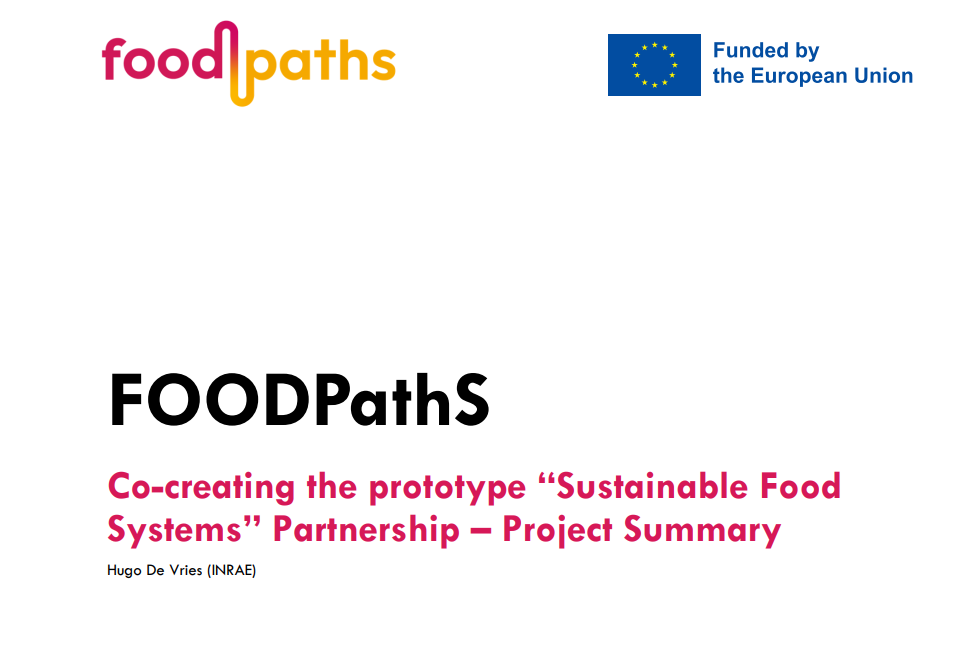
- See more info here
- Register in this link: https://us02web.zoom.us/meeting/register/tZYpceCvqDIoHtG1Xe8AVsNHpwjsGx7IeieG

